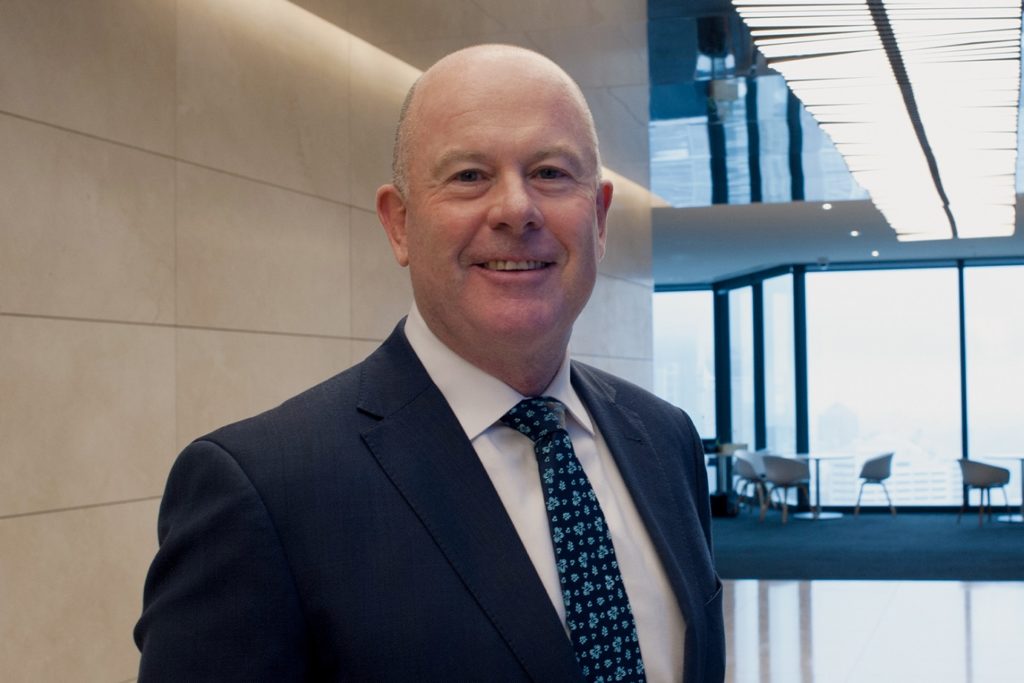On his first day in the job as CEO of KPMG, Andrew Yates made a powerful announcement about the firm’s leave policies that would make national headlines.
He announced that all new parents would get 26 weeks of paid parental leave, regardless of their “primary” or “secondary” status. And regardless of how long they have been with the firm.
Andrew also announced an innovative move around cultural leave, saying staff could “float’ days – to move existing public holiday calendar dates to other points that align with their cultural and religious needs. Meanwhile, Indigenous employees are able to access additional leave to participate in cultural events, under the new leave policy.
Andrew made the announcement while working from home in Sydney, just as the city was settling into a Winter lockdown.
I spoke to Andrew a couple of weeks later for the Family Friend Workplaces Podcast, an initiative of Parents at Work and UNICEF Australia asking how leaders are creating more supportive workplaces, and acknowledging the needs and caring responsibilities staff have outside of work.
Andrew, still in lockdown and continuing to work from home, shared more on why he made the announcement, including how KPMG is advocating for the Federal Government to also extend its paid parental leave scheme to 26 weeks (KPMG recommends this transition occurs over six years, and in a way that gives every new parent at least 18 weeks of paid leave).
He spoke about having his first son (now 12) with his wife when they were both living in New York, and then how he went to work the very next day.
“As I think back about that now, I don’t know what the pressure was on me that made me think that was the right thing to do, to leave my wife and a newborn, all alone in an apartment in New York,” he says.
Now a father of two children (11 and 12), Andrew concedes he’s never taken paid parental leave. While this is common for many fathers, he believes the trend can be turned around through better leave policies.
Such policies can also support employers in building the best possible teams and giving staff more flexibility of choice around how they manage their family life, whatever their family life might look like.
Asked why the firm removed tenure from accessing these leave policies – previously you had to work with the firm at least one year to access paid parental leave – Andrew says it’s about attracting the best people.
“I want to build the most compelling proposition for high quality people in the marketplace if I’m brutally honest. And this is about attracting and retaining the best people and giving people who want to join our organisation flexibility and choice. The concept of having tenure worked against that,” he says.
Andrew hopes that similar policies to what KPMG just announced to be commonplace across industry in ten to 15 years. “That’s going to have a huge impact on women’s workforce participation and on how families bring up children,” he says.
Andrew once had ambitions to play cricket for Australia but was encouraged by his mother to have a ‘Plan B’.
The Plan B worked well for him. He’s started with KPMG as a graduate in 1990 and was named CEO 30 years later.
Starting his first day as CEO from home was not part of the plan, he notes the incredible awareness and understanding that comes from these lockdown periods and working together through a pandemic.
“Everyone is learning more about their colleagues, and those barriers that often exist in a hierarchy and in wearing a suit and tie, have gone out the window.
Given I don’t regularly have an opportunity to interview male CEOs – and also how often the ‘balance’ question’ is directed at female CEOs – I took the opportunity to ask how Yates how he keeps his own work and family life in balance.
“I’ve always thought that to keep everything in balance you can’t ride the highs too much or sweat the lows too much,” he says.
Aside from that, he said runs on the beach help, as well as reserving the weekends for family.
You can listen to the Women’s Agenda interview with Andrew on the Family Friendly Workplaces podcast below.
https://player.captivate.fm/episode/9a232a00-15d3-4ee6-b9e3-83fd98d9f569

